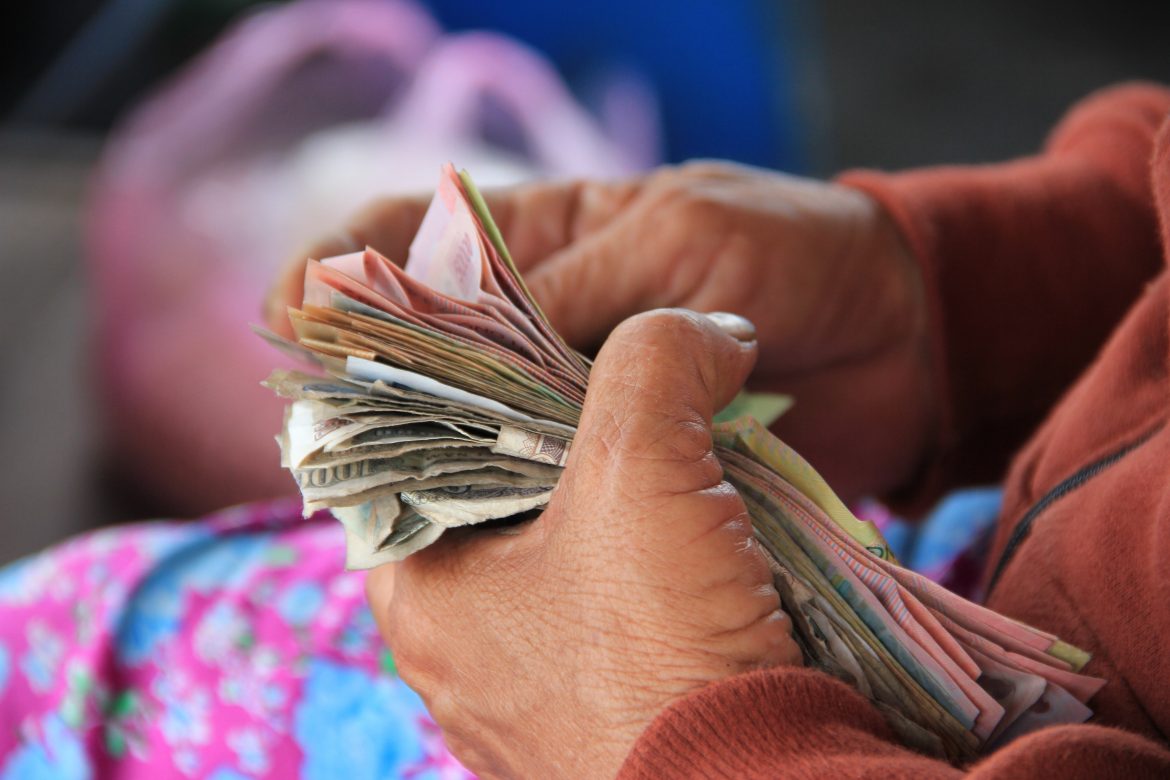by Christine Sine
At the beginning of the Easter season with our emphasis on sustainability, I mentioned that there are four types of sustainability we talk about – human, economic, social and environmental.
It is the economic sustainability that seems to be the hardest for us to come to grips with. How do we make decisions that will make it possible for all the people of our planet to flourish economically? We have already talked about making ethical purchases when we buy clothes, and jewelry, but it surprises me how many Christians I talk to in the U.S. don’t believe that the minimum wage should provide a living wage for an employee. Even fewer seem to be concerned about where they invest their money, as long as they are making enough for their retirement.
When it comes to investing our money, it seems even more of a challenge. Ethical or socially responsible investing seeks to consider not just financial return but also social good. This has become a booming market in the last few years, but I struggle because it seems that financial gain is still often more important than social good. I also struggle with how to do that without replacing the bondage of slavery with that of dependency. How do we truly bring freedom and liberation?
One form of social investing that is very attractive to many Christians, microloans, is often geared towards the poor and seems to have the potential to bring freedom and liberation not just to those who live in poverty but to the rich too. I first learned about this form of transformative help when I worked with David Bussau of Opportunity International, on a document on the Biblical basis for micro finance in the early 90s. That document states:
A strong economic base provides the springboard for many dimensions of a family’s life. The provision of capital and income for a man who has been unemployed and ashamed of his inability to provide, often results in reconciliation of families that have been fragmented and separated. It can provide medical care for children whose parents were once denied this right and access to a decent education for children once forced into child labour. Families that have adequate income can provide the essentials of a decent life – shelter, nutrition, immunization, access to clean water and basic health care. These are all examples of the transformation Jesus would have advocated to see families restored to wholeness and abundant life.
Let’s Consider the Needs of Others.
I believe that we are called to consider the needs of others as more important than our own (Philippians 2:3,4) and above all else to strive to bring wholeness and abundant life especially to those who are poor and marginalized. Jesus showed particular concern for this segment of society, encouraging his followers to give up their possessions and give to the poor. Part of the responsibility of those of us who have resources is to share with those who have no resources. When we do this all our lives are transformed. South African Missiologist David Bosch expresses it well,
To become a disciple means a decisive and irrevocable turning to both God and neighbour…. In their being converted to God, rich and poor are converted toward each other.”
To be converted towards each other means that we are all transformed. The rich (and all of us who are middle class in Australia, New Zealand, North America and Europe, are rich) are transformed because we claim a new identity based not on the security of wealth and prestige but rather on the right and just relationships that are the standards of the God’s eternal kingdom. God sets the wealthy free to serve rather than control others and so devote their attention and wealth to the concerns of God’s eternal world of wholeness and abundance.
To the poor Jesus also offered a new identity – the opportunity to be free and responsible human beings with dignity and self-worth, able to serve God and others in society as God intended. By his words and actions, Jesus constantly demonstrated that the call of God’s eternal kingdom was to bring this kind of wholeness and abundance to to the lives of those at the margins. The equality Jesus envisioned was not a levelling down in which all became poor but rather a willing abdication of the rights of all so that through the practice of servanthood all might be fulfilled, live in harmony with God and develop fully the gifts with which God has endowed them.
So my question for all of us to consider this week is: How do we work for sustainability, for the wholeness and abundance of all God’s people and especially those at the margins? How do our decisions and actions set those who live in poverty free to be the liberated, fulfilled people God intends them to be?

